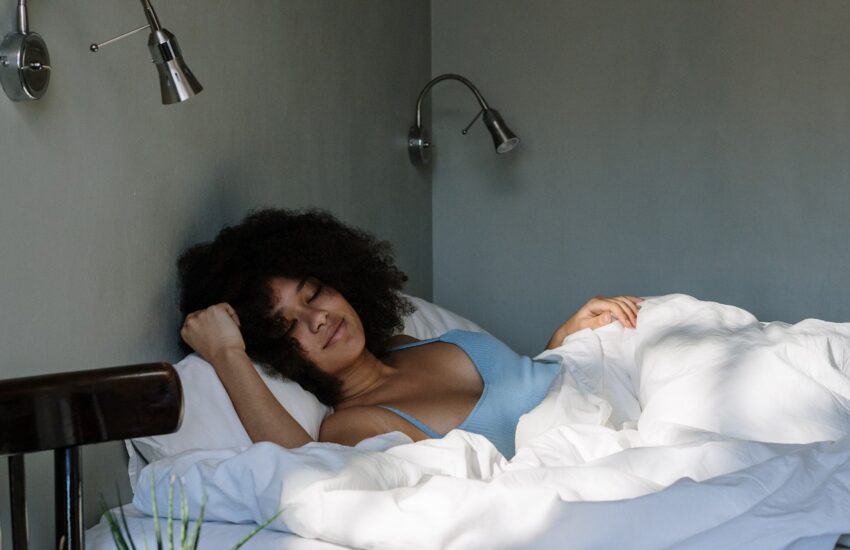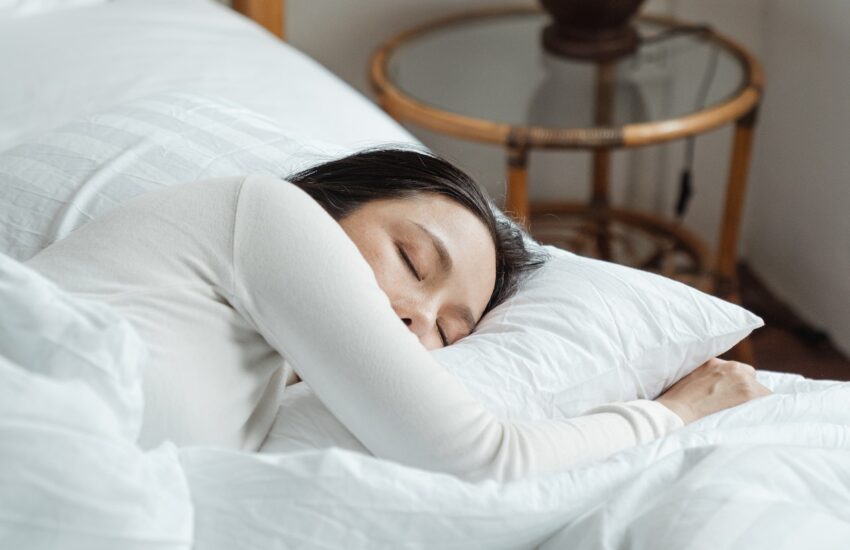Tryptophan for Better Sleep? Find Out How It Works
Yes, You Can Use Tryptophan For Better Sleep
Now that Turkey Day is right around the corner, I wanted to talk about the inevitable “mid-day slump” most Americans will hit after enjoying their Thanksgiving meal.
It could be in the afternoon or later in the day depending on when you eat dinner.
Yes, you’ll likely be sleepy because of the overwhelming amount of food consumed. I mean, when you’re that stuffed, your body’s going to want to send you into a food coma.
But the reality for all the turkey-eaters out there is that one of the main reasons you’ll feel like a freight train of ZZzzs just hit you is because of a special ingredient prominent in turkey:
Tryptophan.
This time of year people love to talk about how turkey makes them tired, but not many people really understand how it works.
Here’s Why Tryptophan For Better Sleep Is An Amazing Thing
Tryptophan is an amino acid, a basic building block of proteins and neurotransmitters used when you experience “Health As It Ought To Be.”
Now tryptophan is unique because it’s an essential amino acid, which means your body needs it for true health, and you can only get it from outside food sources.
Millions upon millions of Americans are in a tryptophan deficit. This is because most Americans have one big problem.
Most Americans have a SAD (Standard American Diet), and that means they don’t get the amount of tryptophan they need to sleep well.
This all makes sense, right?
Now, here’s the cool thing about tryptophan. It’s the amino acid responsible for producing two of the most powerful chemicals in the human body. The hormone melatonin and the neurotransmitter serotonin are both made from tryptophan. If you enjoy sleep and like to feel good then you really need to LOVE tryptophan.
And, as you might guess or already know from some of my other writing (located here), these two chemicals are responsible for deep, relaxing sleep.
Back in the 1970s there were a few studies done which showed supplementing with tryptophan could help people fall asleep faster and sleep better. They noticed doses as small as 250 milligrams were enough to help.
Then in the 1980s studies of 1 gram of tryptophan taken before bedtime were done.
As you might suspect, the researchers observed that the subjects fell asleep faster, slept longer and woke up fewer times during the night. They concluded tryptophan was great for people who suffered from insomnia or took “forever” to get to sleep.
Of course, it depends on your body’s unique genetic makeup, but most studies seem to support the suggested use of 1 gram of supplemental tryptophan for improvements in sleep. Some studies have suggested people take as much as 15 grams of tryptophan, but the weight of evidence suggests you don’t really need that much tryptophan to get results.
Regardless, the one thing that doesn’t change is what tryptophan will do for you if you’re presently deficient in it.
Researchers have been able to show people who,
“Take tryptophan at bedtime are more likely to wake up with increased alertness, to have clearer thinking, and to perform better on attention-requiring tasks. Unlike sleeping pill drugs, tryptophan induces sleepiness but does not impair performance or produce dependence, nor does it make it harder to be roused from sleep when necessary.“
It’s even been suggested it can help people who have obstructive sleep apnea, a dangerous condition where people’s sleep is disrupted in the middle of the night by what can only be described as “near-awakening”
“In one study, patients with obstructive sleep apnea who took 2.5 grams of tryptophan at bedtime showed significant improvement from their baseline sleep patterns, with improvements in the amounts of time spent in “rapid eye movement” (REM) sleep, and shortened time to entering rapid eye movement sleep. Decreased rapid eye movement sleep is associated with poor next-day alertness and feelings of fatigue, sometimes resulting in involuntary falling asleep during daytime (narcolepsy).“
All that being said, tryptophan for better sleep really is something to look into if you suffer from insomnia, restless sleep patterns, or the inability to fall asleep quickly.
The good news is tryptophan isn’t just useful for helping you sleep better.
It can actually do wonderful things for behavioral and mental health.
Other Exciting Benefits of Tryptophan Revealed
Because tryptophan is an amino acid in charge of melatonin and serotonin production, it will also do other beneficial things for you.
1 – Tryptophan helps fight anxiety:
Because tryptophan regulates the production of serotonin, that means it can also help you fight anxiety. Adequate serotonin levels will help you feel calm and can prevent your mind from going off the deep end into a state of anxiety.
…Makes me want turkey bacon.
Several studies have shown supplementing with tryptophan reduces “biochemical markers of stress, particularly the hormone cortisol that has many deleterious effects in the human body.”
2 – It can make you happier:
Serotonin is often referred to as the happiness hormone.
That means if you’re low on tryptophan, you might also be low on serotonin, and consequently low on happiness. You might be able to blame your sadness on the end of your favorite TV show, but the truth is, if you’re low on tryptophan that could also be the root cause.
3 – It can help with your mood:
Here’s the thing about serotonin: there is not a more important neurotransmitter than serotonin in the regulation of mood. This is believed to be caused by a less than desirable amount of serotonin in the brain.
Which is why nearly every anti-depressant on the market has been created to boost the production of serotonin.
That’s why, if you’re deficient in serotonin, taking supplemental tryptophan can help with your mood. In some cases, it actually proves to be as effective as anti-depressants. In other cases, it can help when combined with anti-depressants.
The point being, the supplementation of tryptophan is proven to help with low mood and should be used if necessary.
And, while this isn’t exactly a benefit of tryptophan, the truth is, it’s really affordable. Meaning if you’re not getting enough in your diet there’s really no reason you can’t supplement with it.
So this Thanksgiving when you’re eating your turkey, go ahead, undo that top button and let yourself sleep.
It’s healthy, and you deserve it.


